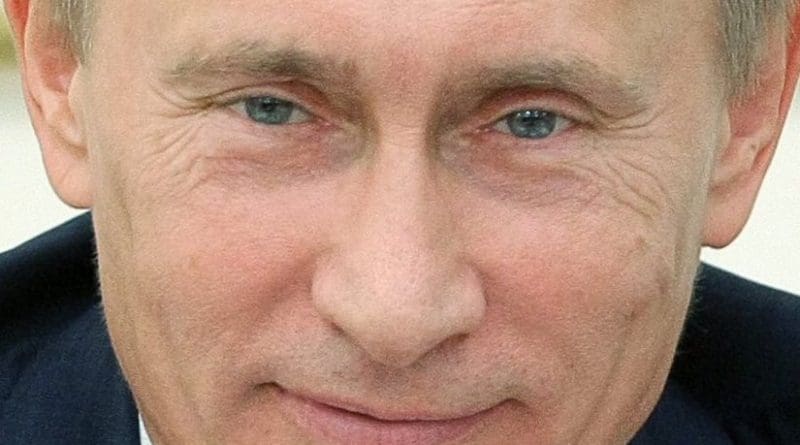Syria: Putin Puzzles The World Once Again – Analysis
By Observer Research Foundation
By Nandan Unnikrishnan*
Russian President Vladimir Putin has once again sent foreign policy makers and experts into a tizzy with the sudden announcement on Monday night of having achieved victory in Syria and therefore Russian troop withdrawal.
The Russians also announced that Syrian President Bashar al-Assad was consulted about the decision. According to the Russian president’s website, Putin called Assad on Monday and the two “agreed” that Russia’s intervention in the war had “brought about a real turnabout in the fight against the terrorists in Syria, throwing their infrastructure into disarray and causing them substantial damage.” But, Russia will continue operating its long-standing base – Tartus in Latakia — to “maintain an aviation support centre in Syria in order to monitor compliance with the ceasefire.”
Russian defence minister Sergei Shoigu is quoted as saying that Russian aircraft flew more than 9,000 sorties, destroyed 209 oil production and transfer facilities, helped Syrian government troops to retake 400 settlements, and helped Damascus to regain control over more than 10,000 sq. km. of territory. Shoigu also told Putin that over 2000 “Russian criminals” – presumably Russian citizens fighting for Daesh (ISIS) – were eliminated.
The Russian presidential website also said that after the withdrawal announcement, Putin spoke with U.S. President Barack Obama about the decision and discussed the ‘next steps’ needed to pursue the Syrian peace process. The two also discussed Ukraine and that “Mr Putin stressed the need for complete fulfilment of the Minsk Agreements by the Ukrainian authorities. The leaders confirmed their intent to continue work with the parties to the conflict in the interest of settling it.” (It would not surprise me if it emerges in the future that a conversation was held between the two leaders, before the Russian intervention five and half months ago.)
The West has cautiously welcomed the withdrawal announcement, which significantly coincides with the day the Syrian peace talks resumed in Geneva. Obama told Putin the “much-needed reduction in violence” since the cease-fire took effect late last month was a positive development, but he also noted the Syrian regime’s “offensive actions” threaten to undermine plans for a United Nations-led political process.
Various theories are floating around the timing and the compulsions for the Russian withdrawal of its “main force” in Syria. The force is variously estimated as being between 3000 to 6000 military personnel.
One theory has it that the withdrawal is prompted by the burden of the economic cost. Another suggests that the Russians decided to cut short the intervention because they did not want to end up alienating the Sunnis. And, a third says that this was a good time to withdraw given the de-escalation in violence after the ceasefire was announced – if the ceasefire breaks down then it would become even more difficult for the Russians to exit.
The first theory is probably the most unlikely cause for withdrawal. The cost of the Russian intervention, depending on the estimate, has varied between 700-odd million US dollars to 1.25 billion US dollars. With the Russian annual defence budget being around 50 billion US dollars, Russia could have easily sustained this intervention for several more months – sanctions and oil prices – notwithstanding.
The second theory may sound credible, but discounts the reality that contacts between leading Sunni states and Russia have actually intensified.
The third theory has probably a kernel of truth, particularly if one places it within the context of Russia having achieved what it sought when it intervened.
First, Russia has shored up the Assad regime – thereby protecting its military presence in Tartus, and making sure that Assad is acutely aware of their contribution to his survival. Second, the intervention and the change it has effected in ground realities ensures that Russia has a place at the head of the table on Syrian peace talks. Additionally, it will exert pressure on Assad to maintain the ceasefire and push ahead with peace talks in Geneva. Finally, it has put paid to Saudi-Turkish plans to dominate West Asia after the rapprochement between the international community and Iran.
Whatever eventually emerges as the main reasons for Russia’s announced withdrawal, without doubt this is a step that will help propel the peace process, provided the international community does not once again waste the opportunity by being caught in pretty bickering. The stakes are too high.

